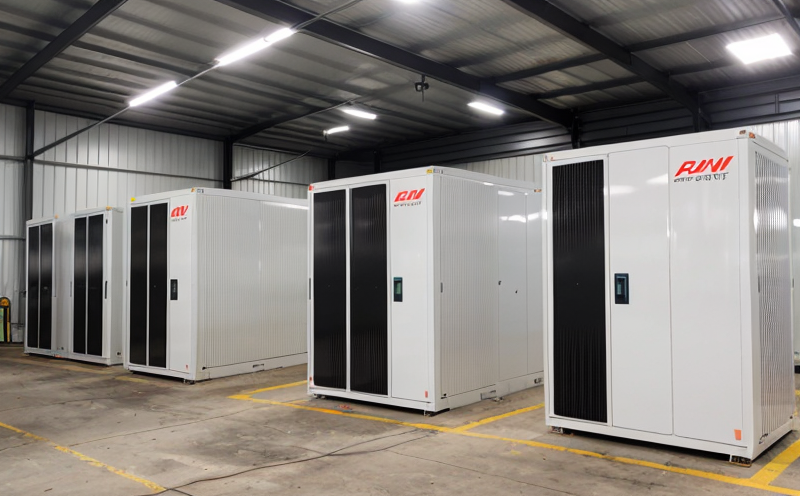UL 2580 Battery Safety Testing for Electric Vehicles
The UL 2580 standard is a critical safety benchmark for lithium-ion batteries used in electric vehicles (EVs). Ensuring the integrity and reliability of these batteries is paramount to prevent fires, explosions, and other hazardous incidents. This service focuses on providing comprehensive testing that aligns with the rigorous requirements outlined in UL 2580-1. Our team of experts ensures that all tests are conducted under controlled conditions to identify potential risks early in the development cycle.
UL 2580 covers multiple test methods aimed at evaluating the safety characteristics of lithium-ion cells, modules, and packs used in EVs. These tests include thermal abuse, mechanical abuse, electrical abuse, and venting tests. Each section aims to simulate real-world scenarios that batteries might encounter during their lifecycle, ensuring they can withstand these conditions without compromising safety.
The standard also emphasizes the importance of robust design practices from the outset, which is why our testing service goes beyond just compliance with UL 2580-1. We incorporate advanced analytical techniques and state-of-the-art equipment to provide insights into not only the immediate pass/fail outcomes but also deeper understanding of battery behavior under stress.
Our team works closely with clients from quality management, R&D engineering teams, and procurement departments to ensure that testing aligns perfectly with project requirements. By leveraging our expertise in both the energy sector and electrical safety standards, we deliver services tailored specifically for lithium-ion batteries intended for use in electric vehicles.
Testing begins with thorough preparation of the specimen according to UL 2580 guidelines. This includes cleaning, labeling, and ensuring that all components meet specified tolerances before being subjected to various abuse conditions. For instance, during thermal abuse testing, temperatures may reach up to 160°C for extended periods; mechanical abuse could involve compressive loads exceeding typical operational pressures by significant margins.
Our laboratories are equipped with precise climate chambers and force measurement systems capable of simulating these extreme environments accurately. Post-test analysis involves detailed inspection of the specimen’s integrity, electrical performance, and thermal behavior, all documented meticulously in reports submitted to clients promptly after completion.
Applied Standards
| Standard | Description |
|---|---|
| UL 2580-1:2019 | Lithium-ion cells, modules, and packs for electric vehicles. |
| IEC 62660-3 | Performance tests on lithium-ion cells intended for use in EVs. |
The UL 2580 standard provides a framework for testing the safety of lithium-ion batteries used in electric vehicles, focusing on preventing hazards like thermal runaway and explosion. It specifies several types of abuse tests designed to simulate potential failure modes that could occur during normal operation or accidental situations.
Industry Applications
- Automakers looking to ensure their EV batteries meet strict safety standards before mass production.
- R&D teams seeking detailed insights into battery performance under abusive conditions.
- Manufacturers aiming to comply with regulatory requirements for lithium-ion cells intended for use in electric vehicles.
- Companies involved in the development of next-generation battery technologies requiring rigorous validation prior to commercial launch.
Use Cases and Application Examples
| Test Case | Description |
|---|---|
| Thermal Abuse Test | Involves subjecting a battery to high temperatures (up to 160°C) over an extended period. |
| Mechanical Abuse Test | Tests the structural integrity of batteries after exposure to compressive forces beyond operational limits. |





